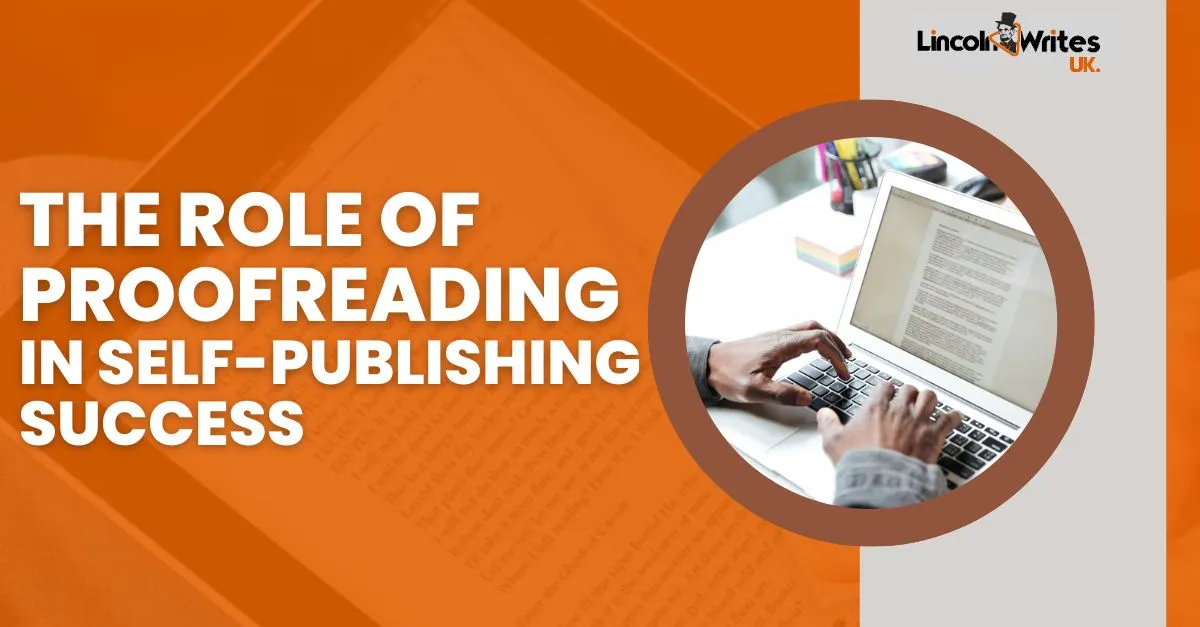You’ve finished your manuscript. You’ve edited it to within an inch of its life. You’re ready to hit that “publish” button. But wait, have you proofread it?
In the world of indie authorship, proofreading in self publishing is often the most overlooked yet most essential step. And skipping it? That’s the kind of thing that can tank a book’s reputation before it ever has a chance to thrive.
If you’re serious about building your author brand, whether you’re publishing your own life story via memoir ghostwriting, releasing a nonfiction guide for your business, or juggling a launch under a ghostwriter’s tight deadlines, proofreading isn’t optional. It’s the finishing touch that transforms your manuscript from “almost there” to “ready for readers.”
Let’s talk about why.
Why Proofreading Matters in Self-Publishing
Self-published books live and die by reader experience. Unlike traditionally published books, which go through multiple layers of editorial teams, indie books depend on the author to ensure quality, and that includes catching every typo, punctuation slip, and formatting oddity.
Here’s what solid proofreading brings to the table:
- Polish: Your sentences read smoothly and professionally
- Credibility: Readers and reviewers trust what you’ve written
- Satisfaction: No distractions = better immersion
- Sales: Positive reviews and word-of-mouth boost long-term growth
When you’re not backed by a major publishing house, your best defence against 1-star reviews and refund requests is… proofreading.
The Impact of Proofreading on Reader Satisfaction
Let’s be blunt: readers notice. They may not consciously spot every comma or spacing issue, but when mistakes pile up, they start to disengage.
Common consequences of poor proofreading include:
- Distracted or confused readers
- Early abandonment of your book
- Negative reviews focusing on grammar instead of content
- Loss of trust in you as an author
And once your credibility takes a hit, it’s hard to recover, especially in competitive niches like business leader ghostwriting, where every sentence reflects your authority.
How Proofreading Differs from Editing
A common misconception? That editing and proofreading are the same. They’re not.
- Editing involves structure, content flow, pacing, and clarity
- Proofreading focuses on grammar, punctuation, spelling, and formatting
Think of editing as sculpting the clay, and proofreading as polishing the final statue.
If you’ve worked with a professional ghostwriter, especially under a ghostwriting legal aspects agreement, proofreading ensures the final manuscript reflects not just legal accuracy, but also clean, correct prose.
Key Areas to Watch During Proofreading
If you’re handling proofreading yourself (or even just reviewing a proofreader’s work), keep an eye on:
- Spelling and grammar errors (especially regional UK/US differences)
- Inconsistent punctuation
- Misused words or homophones (your/you’re, there/their)
- Dialogue formatting
- Chapter titles and numbering
- Line and paragraph spacing
- Metadata and back matter content
Using proofreading checklists will help ensure nothing slips through the cracks.
Tools That Can Help: Proofreading Tools 2025
While nothing replaces human eyes, proofreading tools 2025 have come a long way. Modern software can:
- Highlight style inconsistencies
- Catch advanced grammar patterns
- Provide readability scores
- Suggest punctuation improvements
Still, these tools are best used as a first pass, not a final check. You’ll want to back them up with human proofing, especially if your book is entering distribution via platforms that readers trust (like those tied to major ebook distribution channels in the UK).
When to Hire a Proofreader
There’s a difference between being able to spot an error and being able to spot 1,000 in 80,000 words.
You should hire a proofreader if:
- You’re publishing a book you plan to market widely
- English isn’t your first language
- You’ve read your manuscript so many times that you can’t see it clearly
- You’ve made substantial recent edits
- You’re working with a complex or sensitive topic (like legal, technical, or memoir ghostwriting content)
A second pair of professional eyes can make or break a release, especially in genres where reputations are everything.
Proofreading and Self-Publishing Platforms
Let’s tie this back to your publishing strategy.
Whether you’re going through Amazon KDP, Draft2Digital, or working with ebook publishers UK, your book will be reviewed by algorithms, beta readers, and actual paying customers.
Here’s why proofreading in self publishing is especially important:
- Self-publishing lacks a “quality filter”. You are the quality filter
- Your book will compete against traditionally published titles
- Negative reviews live forever, even if you fix errors later
- You may lose placement on promo sites or recommendation engines
And if your publishing partner offers ebook publisher marketing support, proofreading ensures you’re putting your best foot forward for ads, campaigns, and promotions.
Trends in Proofreading for Self-Publishing (2026 and Beyond)
Let’s take a quick peek at ebook publishing trends 2026 UK and how proofreading fits in.
- AI-generated content is booming: Which means human-proofed books stand out for quality.
- Short-form books and serialised fiction are on the rise: These often skip proper editing, proofreading, and stand out.
- Global readership is expanding: UK readers expect UK grammar and spelling, which means localisation is key.
- Enhanced metadata is critical: Even small errors in your bio or description can hurt conversions.
Bottom line? As the space gets noisier, quality will become your biggest differentiator.
Proofreading and ROI
If you’ve invested in a ghostwriter, you’re already working with professionals. But skipping the final polish could sabotage your return. Whether it’s a business guide written for positioning or an executive memoir under a ghostwriter ROI strategy, proofreading is how you protect that investment.
Think of it this way: a few hundred pounds on proofreading can protect thousands in potential losses from bad reviews and missed sales.
Final Thoughts
Proofreading in self publishing isn’t a luxury. It’s a necessity. It separates amateur releases from professional ones. It shows readers you care. And it safeguards everything you’ve worked so hard to build, whether your book was penned on weekends, created through memoir ghostwriting, or built to grow your platform as a leader.
At Lincoln Writes UK, we support self-publishing authors every step of the way, from proofreading to platform selection to launch strategy. We help you choose ebook publisher partners, ensure your content is ready for professional eyes, and align every release with long-term success.


